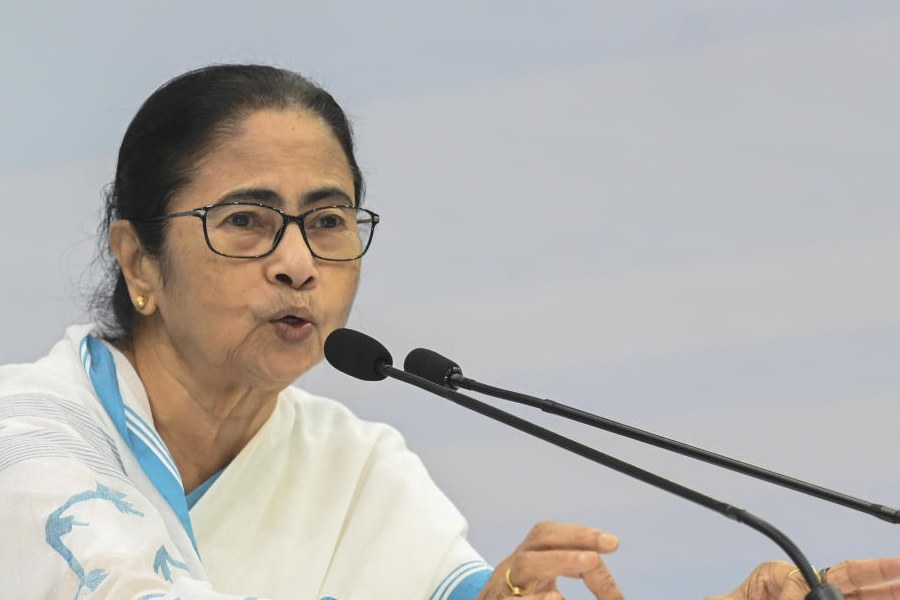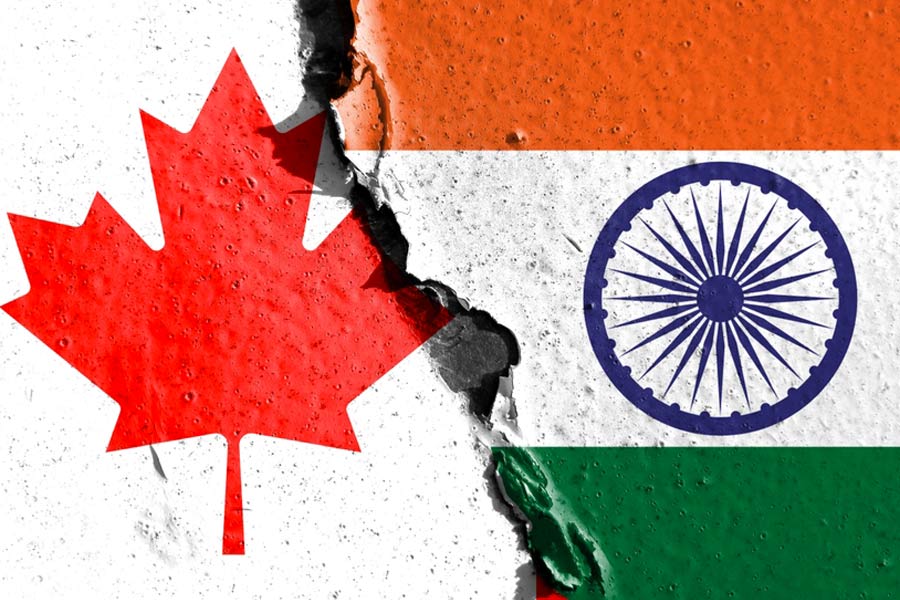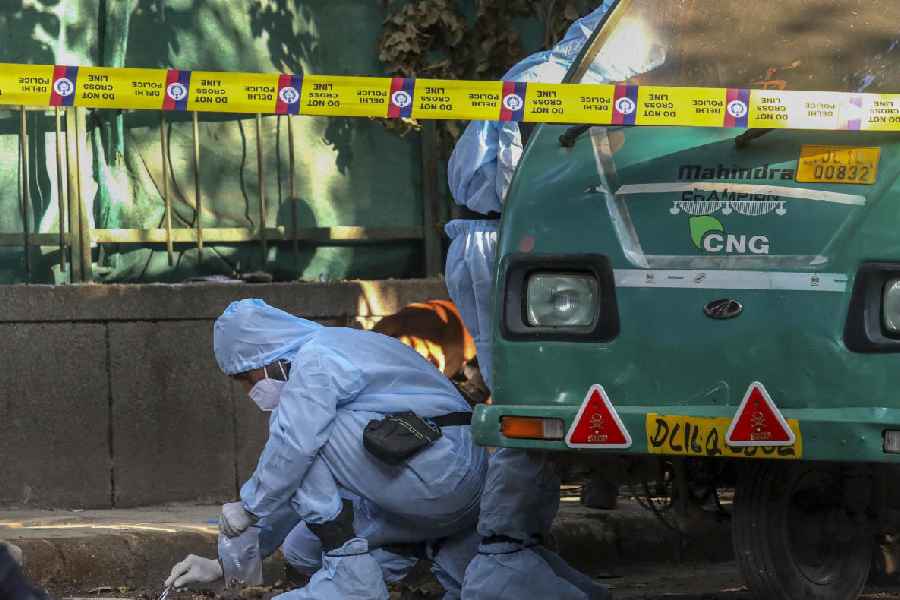India has stepped up screening of travellers arriving from abroad amid mounting worries about a new, fast-spreading Coronavirus variant that’s moving rapidly from southern Africa to other countries around the globe and that may be able to evade prior immunity better than earlier strains.
The World Health Organization late Friday designated the variant, to which it had assigned the Greek letter Omicron under its classification system, as a highly transmissible virus “of concern.” Stock markets in India and other parts of the world tumbled and commodity prices slid on the back of widespread fears that the new b.1.1.529 variant could hit economic growth just as the global economy is showing signs of recovery.
India has imposed travel restrictions on passengers from southern African countries and has said it will maintain “high vigilance levels” at airports. It has also ordered states to send test samples to Insacog (the Indian SARS-CoV-2 Consortium on Genomics).
"Potentially, it can be worse than the (highly infectious) Delta variant. It’s probably spreading faster than Delta. So it may be breaking through vaccination-induced immunity,” says Dr Jacob John, a top virologist and former professor at Christian Medical College, Vellore.
No cases of the new variant have been detected in India so far. The government has asked states and Union territories to conduct rigorous screening and testing of all international travellers coming from or transiting through affected regions – South Africa, Botswana, Hong Kong and elsewhere.
'Seems to be spreading quickly'
It is not known yet if Omicron is more lethal than earlier variants. But Tulio de Oliveira, director of the Centre for Epidemic Response & Innovation in South Africa, tweeted that the new variant “seems to spread very quickly. In less than two weeks, it now dominates all infections following a devastating Delta wave in South Africa.” The Delta variant originated in India and drove the country’s catastrophic second Covid-19 wave. It is currently the most prevalent worldwide.
Besides South Africa and Botswana, other countries including Belgium and Israel have reported cases and are considering strong action to curb infections. Israel’s new prime minister Naftali Bennett said his country was on the verge of declaring a state of emergency. Two cases have been reported in Hong Kong.
India so far has decided to screen and test all international passengers arriving from or transiting through Botswana, South Africa, Hong Kong and Israel. Omicron has rung alarm bells around the world because it has around 50 mutations, out of which 32 are in the spike region. That’s where the virus attaches to human cells and also where vaccines focus to block the infection.
Evades existing vaccines?
Imperial College London virologist Dr Tom Peacock said Omicron has an “incredibly high amount of spike mutations”. These 32 mutations, coupled with its extremely long branch length, could make it very difficult for the existing COVID-19 vaccines to combat this variant. Due to the high number of mutations, the variant is the most significantly different to the one that surfaced in China in late 2019, sparking the pandemic. "It is the most heavily mutated version of the virus we have seen to date. This variant carries some changes we've seen previously in other variants but never all together in one virus. It also has novel mutations," said Lawrence Young, a virologist at the UK’s Warwick Medical School. Young called the variant "very worrying."
Travel bans in Europe
European countries, which are fighting a resurgence of the Delta variant, have announced travel bans on travellers arriving from southern Africa. The UK has suspended all flights from South Africa, Namibia, Zimbabwe, Botswana, Lesotho and Eswatini. Singapore, Japan, Malaysia, the Philippines, Israel, Jordan have all announced curbs on travellers from the African region. The European Union is also planning to ban flights from South Africa. The US will restrict travel from South Africa and seven other countries starting Monday.
Says John: “There is an immunity breakthrough potential so it has to be watched. Until we know more I don’t think we need to be anxious but we should be cautious.”
John says the government needs to give increased heed to getting vaccinations done and also giving booster shots. He adds: “It is a wake-up call for increasing our vaccination coverage so that people will be protected. Some 82 per cent of the eligible population over 18 is single-jabbed while 44 per cent have received both vaccinations. Some 17 crore people though have yet to receive their first injection."
Alarm about the new variant sent the Bombay Stock Exchange tumbling 1,687 points or nearly three per cent with companies across sectors losing ground on Friday. In New York, the Dow Jones Index also fell sharply by 879 points or 2.46 per cent. Markets in Asia and Europe also fell sharply. Oil prices also dipped with worries that a further round of Covid-19 would impact economic growth.
Dramatic surge in cases
One South African official said the country has seen a “dramatic and exponential” rise in new infections over the last four or five days, where “the new variant appears to be driving the spike in cases”. Covid-19 infections have leapt in the last week from 200 new cases a day to 1,200 on November 24 and 2,645 on November 25.
Because Omicron “can be detected by a normal test… it will make it easy for the world to track it,” said South Africa’s Oliveira. “We estimate that 90 per cent of the cases in (the South African province) Gauteng” are the Omicron variant, he tweeted. Omicron has cropped up in cases mainly involving young people who are the least vaccinated in South Africa.
Health experts are particularly concerned about Omicron's impact on treatment and on the efficacy of current vaccines in protecting against Covid-19. “We have every indication that the vaccines are still effective in preventing severe disease and or complications,” said a South African government official.












